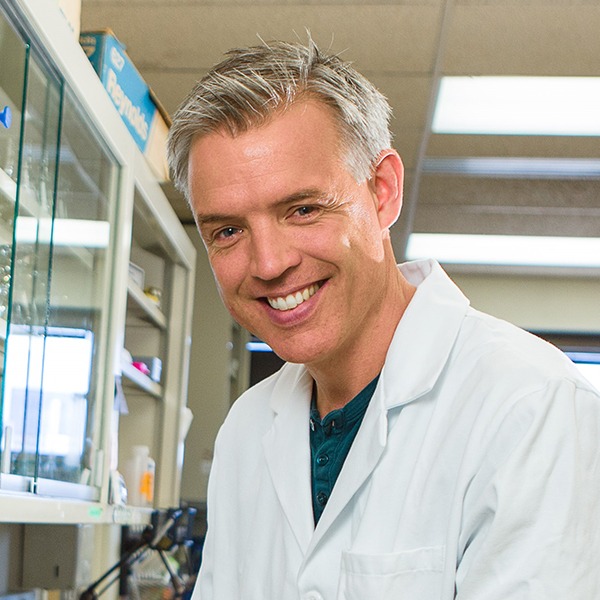Parasitic Diseases in Horses (Parts 1 & 2)
Species
Equine
Contact Hours
6 hours
Early Booking Deadline
Thu, 01 January, 1970
Registration Deadline
Thu, 01 January, 1970
Language
English
Discipline
Internal Medicine – Endocrinology, Haematology, Infectious Diseases, Parasitology & Oncology
Pathology - Clinical & Gross
Industry Partners
Global

Veterinary Partners
Global


Recorded on: October 2020
ONLINE LECTURE SERIES CONTENT
The lecture on 'Parasitic Diseases in Horses' gives a broad overview on larval cyathostominosis, small intestinal ascarid impactions, tapeworm-associated colic, and non-strangulating intestinal infarction. It will summarize the scientific evidence behind each of these clinical syndromes and their risk factors, pathophysiology and briefly touch on treatment protocols and often expressed concerns when treating parasitized horses with effective larvicidal anthelmintics.
The lecture on 'Equine parasite diagnostics' will describe currently recommended techniques for determining fecal egg counts and explain relevant diagnostic parameters. Recently emerged or emerging diagnostic techniques such as anti-tapeworm antibody ELISAs and an ELISA for measuring antibodies to encysted cyathostomin larvae will be presented and discussed.
The webinar on 'Principles of anthelmintic therapy' will describe current occurrences of anthelmintic resistance in equine parasites, and briefly discuss mechanisms of resistance development. Evidence-based approaches for parasite control will be described, taking into account important factors such as horse age, climate, seasonality, and levels of anthelmintic resistance.
The seminar on 'Common myths and misconceptions in equine parasite control' will list a number of commonly encountered myths and misconceptions, and outline how the large body of evidence either does not support these, or points in a very different direction.
Panel Discussion – Worms, Glorious Worms – Assessing Disease Risks & Control Recommendations (Part 2) (Recorded 27 October 2020)
PANEL DISCUSSION DESCRIPTION
Panelists:
Martin Nielsen DVM, PhD, DACVM, DEVPC – DVM, PhD, DACVM, DEVPC, USA
Nikki Walshe DVM – University College Dublin, Ireland
Jane Hodgkinson PhD, BSc (Hon) – University of Liverpool, UKModerator:
Ben Sykes BSc, BVMS, MS,DACVIM, DECEIM, MBA, PhD – The Univ. of Queensland, Australia
Endoparasites are an important cause of disease in the horse. The widespread emergence of resistance has prompted critical reflection on the role of interval treatment with a move towards ‘test and treat’. However, recent evidence questions the accuracy of ‘test and treat’ strategies for disease mitigation in individual patients. This panel will review the role of endoparasites in disease (incl. geographical differences) and consider what factors should be considered in control recommendations for individual animals and herds. The international panelists will be debating the following topics:
- The risk of parasitic disease (incl. geopgrahical differences)
- Larval cyathostominosis – is the risk real?
- Diagnostics – Usefulnes and limitations in assessing and monitoring individuals/herds
- Are faecal egg counts reliable?
- Can we assess tapeworm burden?
- Can we assess encysted cyathostome burden?
- Treatment, resistances, associated risks & toxicity
- Is the use of unlicensed mediations justified and/or safe?
- Is routine autumn treatment justified?
.
Ben graduated from Murdoch University in 1997. He completed an Internship at Randwick Equine Centre in 1998 followed by a residency in Equine Internal Medicine in Virginia (USA) gaining his Diplomate Registration in Equine Internal Medicine in 2004. He then spent 7 years in Finland as Head of the Veterinary department of Equine Medicine and Surgery and was also visiting Professor in Equine Medicine and Surgery in Estonia. In 2011, Ben was awarded his European Diplomate award and he has a special interest in equine gastric ulcers, with many peered review publications to his credit. He is an Associate Professor in Equine Internal Medicine at Massey University and Honorary Lecturer at the University of Liverpool in the postgraduate certificate programme.
Jane Hodgkinson is Professor of Molecular Veterinary Parasitology, University of Liverpool. Her primary research focus is on anthelmintic resistance in parasites of ruminants and horses. Over the last 20 years she has secured multiple grants to investigate key aspects in the biology of the equine parasites, their diagnosis and control and is academic lead for the University of Liverpool equine parasitology diagnostic service, Diagnosteq. She has an extensive teaching portfolio at both undergraduate and postgraduate level and is a keen promoter of knowledge exchange to the equine community; promoting sustainable control practices.
Dr. Nielsen graduated with his DVM degree from the Royal Veterinary and Agricultural University, Denmark in 2001. He spent three years in equine veterinary practice before joining graduate school. He received his Ph.D. in equine parasitology at University of Copenhagen in 2007, and served as assistant professor there until 2011.
He then joined the M.H. Gluck Equine Research Center at University of Kentucky where he now serves as associate professor and holds the title of Schlaikjer Professor in Equine Infectious Disease.
Nikki Walshe is currently an Assistant Professor in Equine Clinical Studies in UCD. She qualified from UCD school of veterinary medicine in 2011. Then over the next 5 years gained clinical experience and expertise in equine field medicine both in the southern hemisphere and here in Ireland, during which she completed a postgraduate certificate in advanced equine practice (CertAVP). She joined the UCD equine field service in 2016. In this role she provides a clinical service and facilitates the teaching of the equine clinical studies rotation.
From her experience in the field, Nikki developed a particular interest in the area of equine parasitology, which is the basis of her PhD - the investigation of mechanisms behind parasite associated disease in the horse with a particular emphasis on role of host immunology and the intestinal microbiome- supervised by Grace Mulcahy and Vivienne Duggan. She also recently began a residency training program with the European Veterinary Parasitology College (EVPC) supervised by Grace Mulcahy and Theo de Waal.
Veterinary Student
Online Lecture Series
USD 60.00
Qualified Vet
Online Lecture Series
USD 290.00
Intern/Resident (Requires proof of status)
Online Lecture Series
USD 220.00
Vet Nurse/Vet Tech (Requires proof of status)
Online Lecture Series
USD 220.00
If the options you are looking for are unavailable, please contact us.
No tax will be added unless you are a UK taxpayer
Choose currency at checkout


















